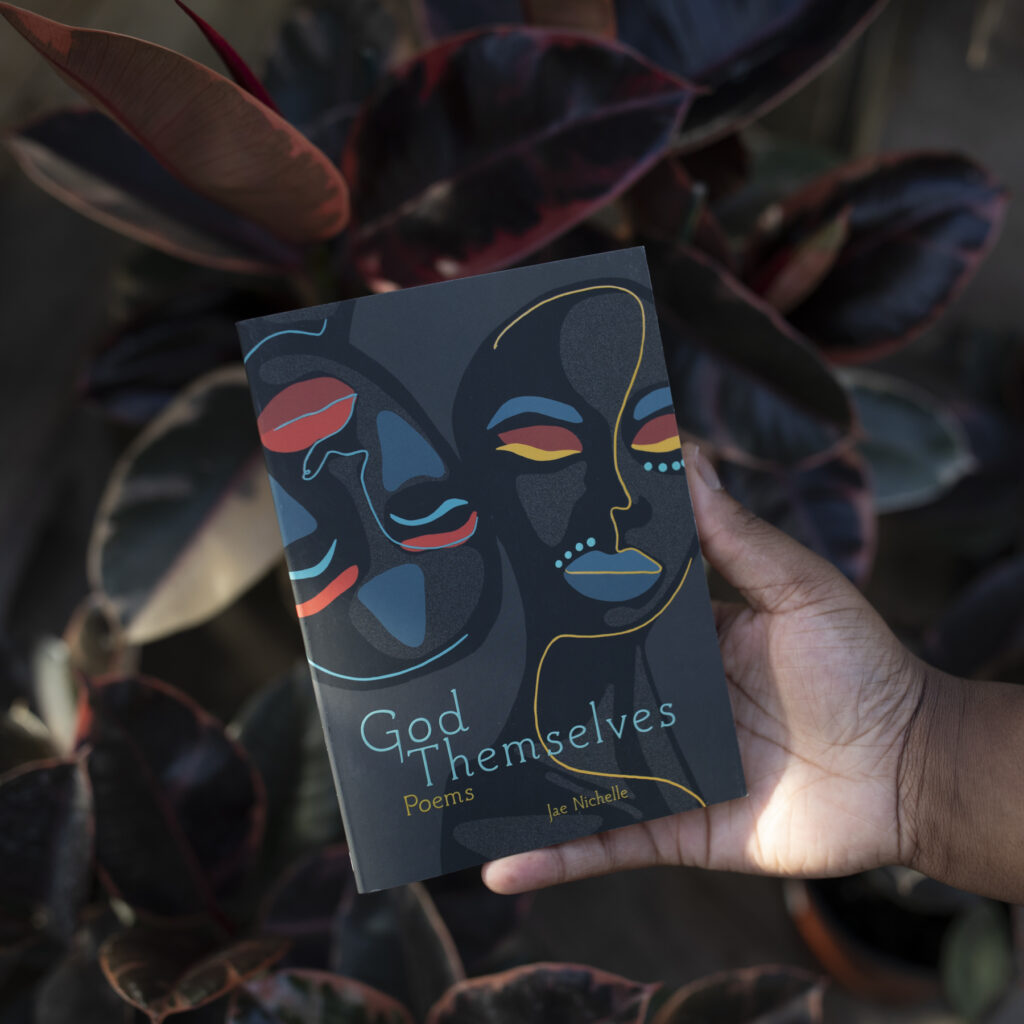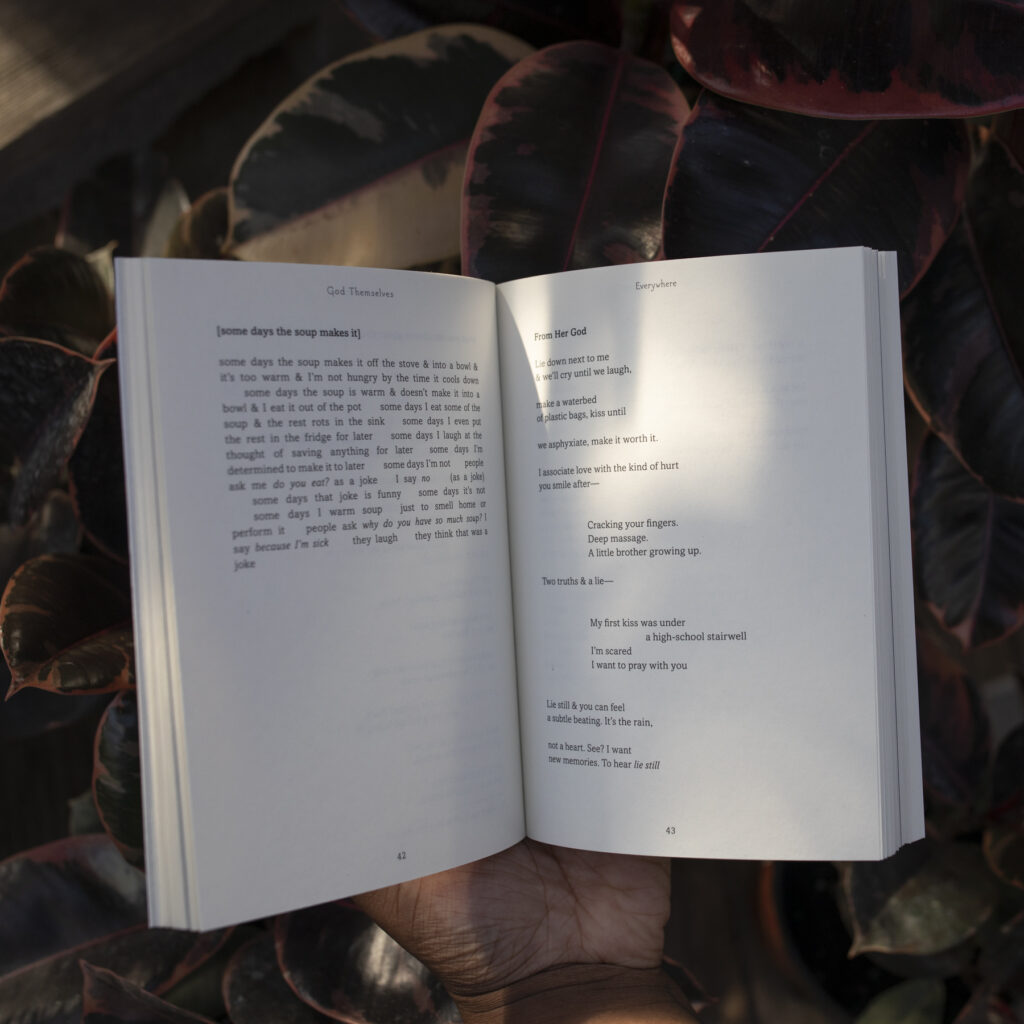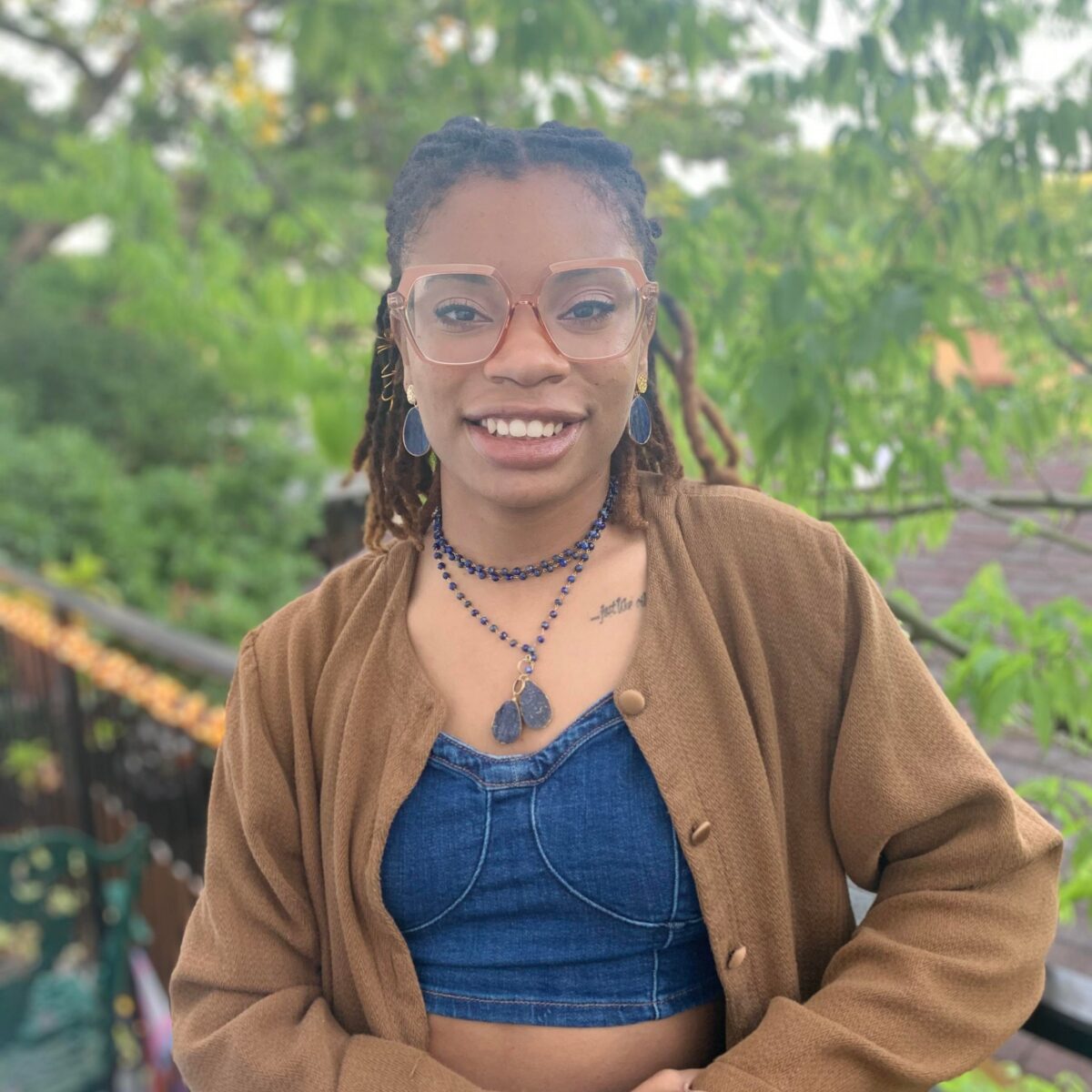7 Questions With God Themselves Author Jae Nichelle
Poet Jae Nichelle’s debut poetry collection, God Themselves, comes out March 14. The book reflects on growing up in the South as a queer Black woman, as well as reconciling these identities with a deep-seated religious tradition. Nichelle, who has had long-standing success as a spoken word and performance poet, talked with Read Poetry about how her experience in the slam community translated to this collection, her approach to organizing a manuscript, and how poetry has helped her spiritual journey evolve.

Kara Lewis (KL): This is your debut poetry collection, but you’ve had a lot of success as a spoken word poet and in the slam community. How did this translate to the writing of God Themselves?
Jae Nichelle (JN): I love to tell stories, and I love to play with sound. There are two poems in this collection that I’ve previously performed on stage: the soup trilogy and “What Happens In This House.” Other than that, the pieces here aren’t what I’d typically bring to a poetry slam. However, much like my spoken word, these poems tell stories and sound good. My first step after writing almost anything is to read it out loud and see how the words feel on my tongue.
Finally, writing God Themselves helped me draw personal parallels between my experiences in churches and at poetry slams. They are both communal, participatory spaces. So, many of the poems here invite readers to participate, to fill in blanks, to join a chorus, to solve a puzzle, etc. Just like at a poetry slam, the reader or audience becomes as much a part of the experience as the poet.
KL: This collection opens with a quote from Ntozake Shange: “i found god in myself / & i loved her / i loved her fiercely.” Why did you decide to include this epigraph and how does it contextualize the book?
JN: This quote is from the end of Shange’s choreopoem for colored girls who have considered suicide / when the rainbow is enuf. This work is one I return to frequently when I need a good cry, as it doesn’t shy away from showing the harm Black women endure. But in the end, we have ourselves and each other. For me, this final line and the build-up to it encapsulate where the speaker in God Themselves is trying to land.
In my first draft of the book, there was a second epigraph, which was a quote from Janelle Monae’s song “Crazy, Classic, Life” that goes “I just want to find a god / and I hope she loves me, too.” While similar to the quote from Shange, it’s less definite and less assured. And I think that one gets at the ever-present sense of longing throughout God Themselves.
KL: This collection is organized into three sections: “Everything,” “Everywhere,” and “Love.” Why did you decide to organize the book this way?
JN: Growing up, I was told this about God: God is everything, God is everywhere, and God is love. I think that’s beautiful, and these are the places where the speaker looks for God: in everything, in every place, and in love.

KL: This book takes on many risks with form, from haiku to the incorporation of footnotes and crossed-out lines. What do you think this experimentation with form adds to the collection, and why did you decide to write in such a wide variety of forms?
JN: I find it fun to make the page my playground to figure out different ways to express ideas. I’ve never been much of a visual artist, but I am a visual learner and thinker. “Isolation of Self,” for example, came about because I could so clearly see how the pandemic was making me think about selfhood and separation, but I didn’t have the words to say it. I also have a busy mind. Sometimes I want to say a lot of different things at once, which the cross-outs and footnotes allow me to cheat and do.
I also wanted to give the book a Biblical feel, given its subject, which brought me frequently to couplets, footnotes, roman numerals, and the numeration in “Psalm 161.”
KL: Setting—from the church, to the speaker’s house, to the larger South—plays a huge role in this collection. How do you approach creating a sense of place in your poetry?
JN: Place is inextricable to my life experiences and worldview. My perception of US Southerness, home, community, and departure are key influences on this collection. I feel like I can’t say that I create this sense of place intentionally at all. If anything, I just reveal it.
View this post on Instagram
KL: Within this collection, the speaker broadens and reconsiders their understanding of God and religion. How has poetry helped your own spiritual journey evolve?
JN: Poetry has made me very comfortable with having more questions than answers.
KL: What’s the biggest theme or message you hope readers take away from this collection?
JN: I started this book at a time in my life when I realized that many things I thought were rigid and certain simply weren’t. Time, knowledge, identity, and all those lofty concepts are so flexible and vast. I’m no preacher, but I hope readers close the book feeling invited to bask in uncertainty with me. And maybe feeling like they just got a long hug from a friend.
Order God Themselves here.




